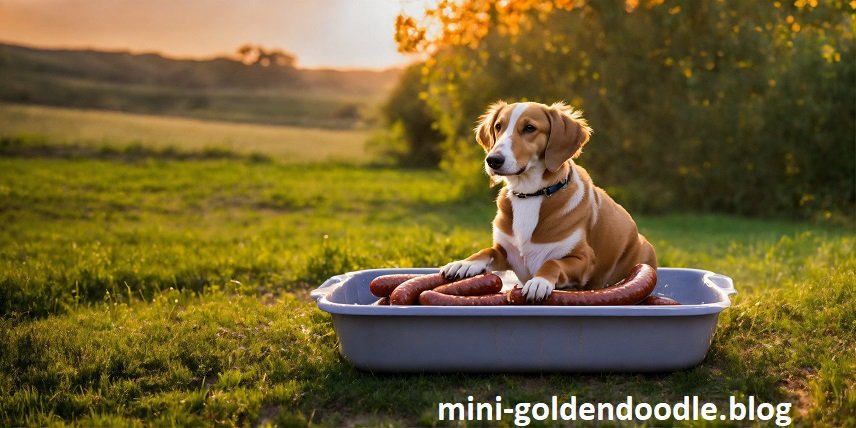Introduction
Puppy puppy has diarrhea but still playful ownership is incredibly joyful and companionship-enhancing, but it also has obligations, such as handling health difficulties. Puppy owners frequently worry about their beloved friend having diarrhea but still seeming lively. Despite the seeming contradiction, there are a number of causes for this as well as precautions you can take to keep your puppy happy and healthy.
Understanding Normal Puppy Behavior
Puppies are gregarious, lively animals by nature. Play is an important developmental technique that aids in the acquisition of social skills, motor abilities, and self-control. Puppies frequently playfully interact with one another throughout the day, displaying curiosity and eagerness to explore their environment.
Recognizing Diarrhea in Puppies
Puppies with diarrhea typically have loose, watery stools that come up more often than not. It’s critical to keep an eye on your puppy’s stool frequency and consistency to differentiate between diarrhea and regular bowel movements. It’s important to take notice of any additional symptoms that may accompany diarrhea, such as vomiting, fatigue, or changes in appetite.
Common Causes of Diarrhea in Puppies
Diarrhea in puppies can be caused by a number of things. Introducing abrupt dietary changes, like changing brands or giving them leftovers from the table, can agitate their delicate digestive tracts. Common reasons include viral illnesses like parvovirus and intestinal parasites like giardia or roundworms. Puppies who are in stressful situations like as travel, unfamiliar surroundings, or separation anxiety may also have gastrointestinal distress.
When Diarrhea Is a Concern
Even though puppies are tough animals in general, chronic diarrhea may be a sign of a more serious health problem. It’s critical to seek veterinarian care right away if your dog has diarrhea that lasts longer than 24 hours, involves blood or mucus, or is accompanied by symptoms of dehydration like dry gums or extreme thirst. These signs might point to a more serious illness that needs to be treated by a doctor.
The Role of Playfulness in Diarrhea
Even when they have diarrhea, puppies frequently act like playful animals. Their strong curiosity and high activity levels might outweigh any discomfort from gastrointestinal problems. Playfulness is a typical aspect of puppy behavior and does not always indicate how sick a puppy is. Nonetheless, when treating the symptoms of diarrhea, it’s critical to keep an eye on their general health and wellbeing.
Steps to Take When Your Puppy Has Diarrhea
It’s critical to act quickly to treat your puppy’s diarrhea when you observe that they are still lively despite having it. In order to prevent dehydration, keep a careful eye on their symptoms, make sure they have access to clean water, and think about giving them a simple meal like rice and boiled chicken. You should speak with your veterinarian for advice on the best course of action and management techniques if your dog’s diarrhea continues or gets worse.
Home Remedies for Mild Diarrhea
Home cures for minor episodes of diarrhea can aid in your puppy’s rehabilitation by reducing symptoms. A simple diet of easily digested meals, such as rice and boiling chicken, can help settle their stomach and firm up their stools. The high-fiber content of plain canned pumpkin can also help to control bowel motions. Probiotics intended for pups may also help with digestion and support a healthy gut flora.
When to Seek Veterinary Care
For the sake of your puppy’s health, you must know when to seek veterinarian attention. It’s critical to contact your veterinarian right once if diarrhea lasts more than 24 hours, gets worse despite attempts at home care, or is accompanied by other worrisome symptoms like vomiting or lethargy. Puppies are more susceptible to dehydration and may need medical attention to avert complications, especially if they are less than six months.
Treatment Options from Your Veterinarian
Diagnostic tests, such as fecal examinations or blood testing, may be part of your puppy’s veterinary care to find the underlying reason of its diarrhea. Your veterinarian may recommend fluid therapy to alleviate dehydration, give antibiotics or dewormers, or make food recommendations particular to your puppy’s needs, depending on the diagnosis. To guarantee your puppy’s speedy recovery, you must adhere to your veterinarian’s recommended course of care.
Preventing Diarrhea in Puppiespuppy has diarrhea but still playful
When it comes to maintaining the gastrointestinal health of your puppy, prevention is key. Digestion disturbance can be avoided by introducing new meals gradually and refraining from abrupt dietary adjustments. Intestinal parasite risk can be decreased by adhering to a regular deworming schedule and adopting proper hygiene, such as cleaning your puppy’s living space and washing your hands after touching excrement. The general health and digestive system of your puppy can also be supported by reducing stressors and offering a stable environment.
Conclusion
For any owner of a pet, managing a diarrhea-sick puppy while keeping them playful can be difficult. By being aware of the symptoms, identifying the causes, and acting appropriately, you may aid in your puppy’s speedy recovery and avoid further bouts of diarrhea. Never forget to speak with your veterinarian if you have any worries regarding the health of your puppy.
FAQ
Why is my puppy still playful with diarrhea?
Puppies’ natural tendency toward playfulness doesn’t always reflect how sick they are. Puppy fever might cause them to stay active even when they’re sick.
What should I feed my puppy with diarrhea?
For pups suffering from diarrhea, a bland diet consisting of rice and cooked chicken is frequently advised. It helps to stiffen up stools and is readily digested.

